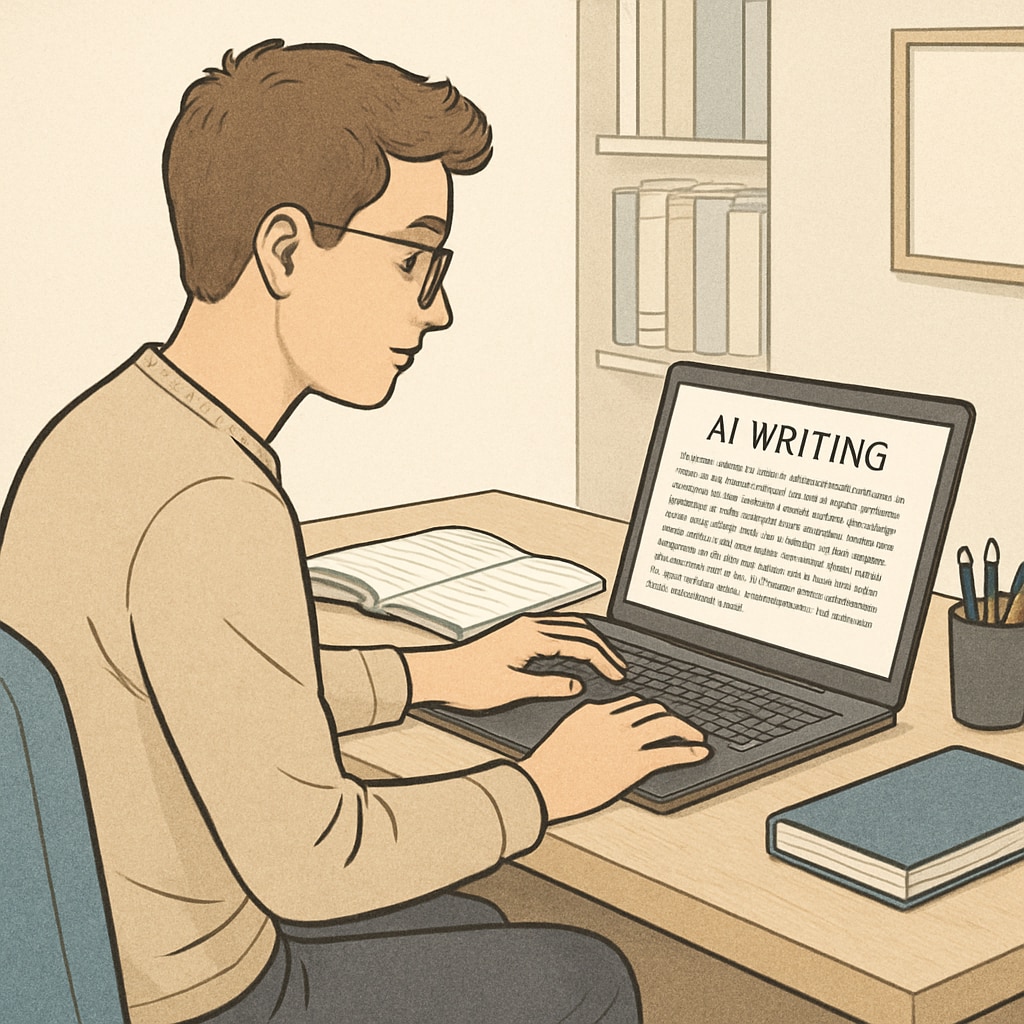The advent of artificial intelligence (AI) writing tools has brought profound changes to the educational landscape, redefining how students approach assignments and academic tasks. While these tools offer undeniable convenience, they also pose significant ethical dilemmas, particularly concerning academic integrity, AI writing detection, and the experiences of first-generation college students navigating higher education. These challenges demand attention from educators, parents, and policymakers to ensure fairness and preparedness across all levels of learning.

AI Writing Tools: A Double-Edged Sword
AI writing tools, such as ChatGPT and Grammarly, have become increasingly popular, especially among high school and college students. These tools can help users generate well-structured essays, correct grammar, and even brainstorm ideas. For students in high school, the use of AI tools is often seen as a learning aid, fostering creativity and improving language skills. However, the transition to college brings stricter rules regarding their use.
In many universities, the use of AI writing tools is scrutinized under academic integrity policies. While some institutions allow limited use as long as proper credit is given to AI assistance, others strictly prohibit their involvement in graded work. This shift can be confusing for incoming students, especially first-generation college students who may lack familiarity with academic norms. As a result, understanding the ethical boundaries of AI tool usage becomes crucial for academic success.

Challenges for First-Generation College Students
First-generation college students—those whose parents did not attend college—often face unique challenges in adapting to higher education. They may encounter unfamiliar academic expectations, including stringent rules about plagiarism and the proper use of AI writing tools. Without adequate preparation, these students risk violating academic integrity policies unintentionally, which can lead to severe consequences such as failing grades or disciplinary actions.
Moreover, AI writing detection technologies, such as plagiarism and originality-checking software, add another layer of complexity. These systems can flag content generated by AI tools, even if a student has used them responsibly or cited their use properly. For first-generation students already navigating a steep learning curve, this creates an additional barrier to success in academia.
Preparing Students for Ethical AI Tool Usage
To address these challenges, K-12 educators must play a proactive role in preparing students for the academic integrity standards of higher education. This includes teaching students the ethical implications of AI tool usage, emphasizing the importance of originality, and providing clear guidelines for proper citation practices when using AI assistance.
Educators can also incorporate lessons on digital literacy, ensuring students understand how AI tools function and the risks associated with relying too heavily on them. By fostering critical thinking and ethical decision-making skills, teachers can help students navigate the transition from high school to college more effectively.
- Explain the differences between high school and college rules regarding AI tools.
- Provide workshops or resources on academic integrity policies.
- Teach students how to cite AI-generated content properly.
Looking Ahead: Balancing Innovation and Integrity
As AI technology continues to evolve, its role in education will undoubtedly expand. Universities and educators must strike a balance between leveraging these tools to enhance learning and maintaining rigorous academic integrity standards. Collaboration between K-12 schools and higher education institutions can ensure students are equipped to navigate this ethical divide responsibly.
In addition, ongoing research into AI writing detection tools can help institutions refine their policies, ensuring fairness for all students, including first-generation college attendees. Transparency in these systems and clear communication of expectations will be key to fostering trust and accountability in academia.
In conclusion, academic integrity and AI writing tools represent a complex intersection of technology, ethics, and education. By addressing the unique needs of first-generation college students and promoting responsible AI usage, educators can pave the way for a future where innovation and integrity coexist harmoniously.


